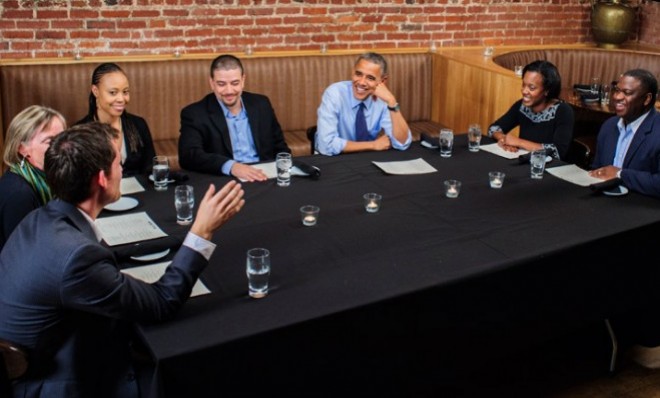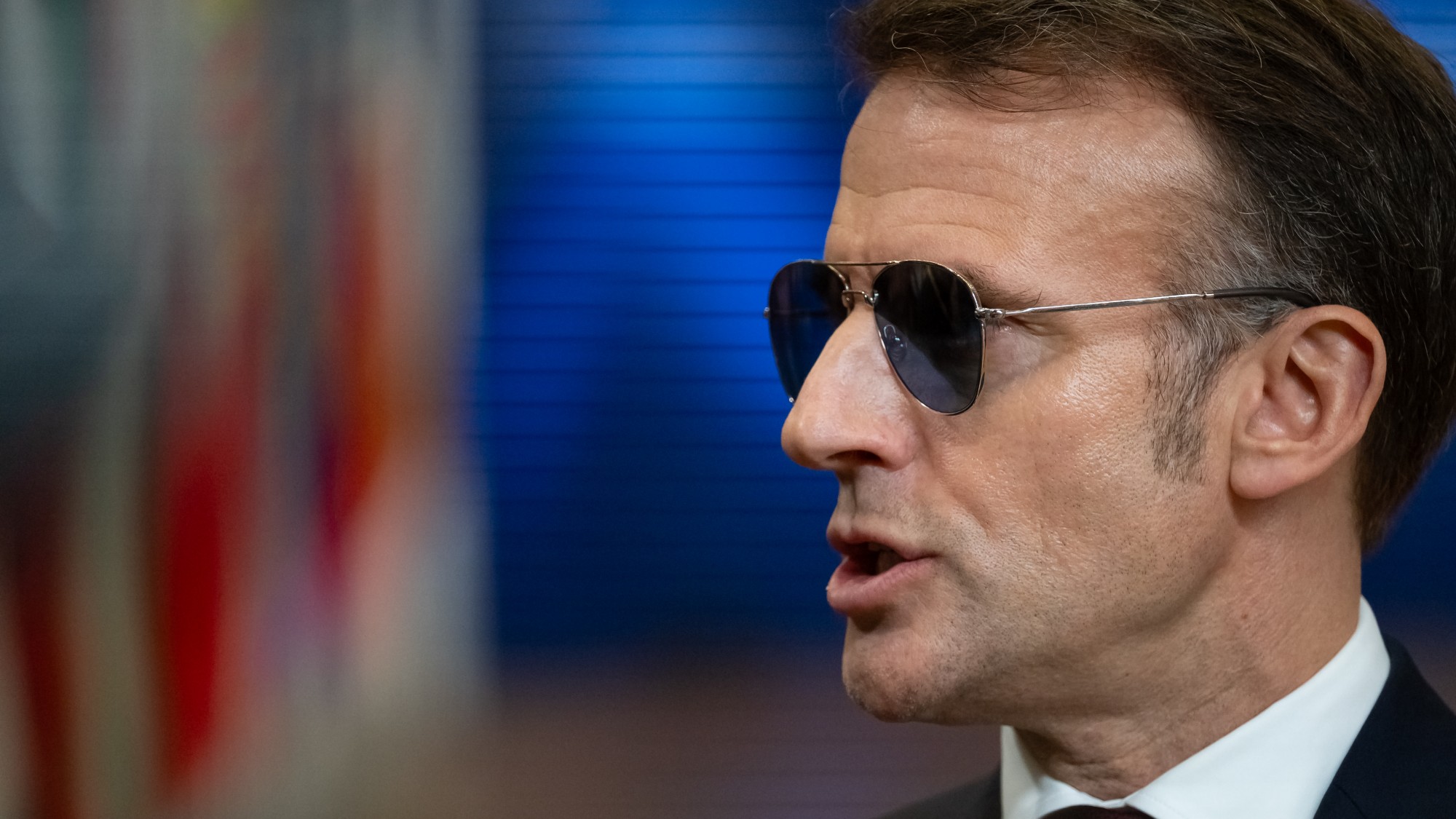Are campaign contribution limits unconstitutional?
The Supreme Court will take a look at the biggest challenge to election finance law since the 2010 Citizens United case


The Supreme Court has agreed to review what legal experts are billing as the most important campaign-finance case since Citizens United. That 2010 decision struck down limits on what individuals and groups can pump into election season messaging done independently of any candidate's campaign. The new case, McCutcheon v. Federal Election Commission, goes after another pillar of federal campaign finance law — the limits on contributions people can make directly to political candidates and some political committees. The lawsuit — filed by Shaun McCutcheon, a GOP donor from Alabama, and the Republican National Committee — is based on the argument that the limits (including $46,200 in a two-year cycle from any individual to any one political candidate) are so low that they amount to an unconstitutional obstacle to political expression.
Some see this as a pretty compelling argument. In fact, says Jennifer Rubin at The Washington Post, now that the Citizens United decision has opened the door to unlimited spending outside the supervision of candidates and political parties, you can make the case that "the campaign contribution limits to candidates and committees are now the source of much of what ails the political process." They restrict the amount donors can give to parties, "traditionally moderating and vetting entities," while letting any crackpot with deep pockets prop up as many "fringe candidates" as he or she likes.
For all the high-minded talk, McCain-Feingold, which put shackles on parties, has promoted extremism, lack of transparency, and corruption. If this is what the Supreme Court is driving at we may witness a complete shake-up (or rather, another one) of the way campaigns are financed.Those who are really interested in a robust political system, but one in which moderation and transparency are encouraged, should root for the dollar limits to be struck down. [Washington Post]
Political candidates have been hitting up supporters for cash for quite some time, but, as the nonpartisan group Democracy 21 notes, a ruling in favor of McCutcheon would "represent the first time in history that the Court declared a federal contribution limit unconstitutional." The contribution limit, enacted in 1974, is necessary to prevent federal officeholders from "soliciting huge corrupting contributions," says Fred Wertheimer, Democracy 21's president.
The Week
Escape your echo chamber. Get the facts behind the news, plus analysis from multiple perspectives.

Sign up for The Week's Free Newsletters
From our morning news briefing to a weekly Good News Newsletter, get the best of The Week delivered directly to your inbox.
From our morning news briefing to a weekly Good News Newsletter, get the best of The Week delivered directly to your inbox.
Absent the aggregate overall limit on contributions by an individual, President Obama, House Speaker Boehner or any other federal officeholder or candidate would be free to solicit, and an individual free to contribute, a single check to a national party of $1,194,000 for a two-year election cycle...Similarly, President Obama, House Speaker Boehner or any other federal officeholder or candidate could solicit, and an individual could contribute a single check of as much as $2,433,600 to be divided up among every federal candidate in their party running for Congress.This would open the door to $1 million and $2 million dollar contributions from an individual buying corrupting influence with a powerful officeholder soliciting these contributions, and with the political party and federal candidates benefiting from these seven figure contributions. [Democracy 21]
In theory, this case gives the Supreme Court the opportunity to "destroy campaign finance limits," says David Weigel at Slate. Nevertheless, "the recent experience hasn't been good for the let-money-flow crowd." The last court to rule on McCutcheon, the D.C. Circuit, smacked down the case against contribution limits in an opinion written by the "libertarian-minded judge" Janice Rogers Brown, who usually falls to the right of Justice Anthony Kennedy, the high court's swing vote.
And "even if the court issues a narrow ruling in McCutcheon and the RNC's favor," says Adam Winkler at The Daily Beast, this case won't be as earth-shaking as Citizens United. The justices could indeed use the case to continue dismantling the "campaign finance wall first erected in the mid-1970s" by ruling campaign contribution limits unconstitutional. But "while such a ruling undoubtedly would incite claims that the justices had opened up the floodgates for money to influence our elections, that would be hyperbole," Winkler says. "For good or ill, American elections are already flooded with money. The wall has already been breached. How much does it really matter if a few of the remaining stones are carted away?"
A free daily email with the biggest news stories of the day – and the best features from TheWeek.com
Harold Maass is a contributing editor at The Week. He has been writing for The Week since the 2001 debut of the U.S. print edition and served as editor of TheWeek.com when it launched in 2008. Harold started his career as a newspaper reporter in South Florida and Haiti. He has previously worked for a variety of news outlets, including The Miami Herald, ABC News and Fox News, and for several years wrote a daily roundup of financial news for The Week and Yahoo Finance.
-
 Syria’s Islamic State problem
Syria’s Islamic State problemIn The Spotlight Fragile security in prison camps leads to escape of IS fighters
-
 Quiz of The Week: 17 – 23 January
Quiz of The Week: 17 – 23 JanuaryQuiz Have you been paying attention to The Week’s news?
-
 The Week Unwrapped: What can we learn from a tool-wielding cow?
The Week Unwrapped: What can we learn from a tool-wielding cow?Podcast Plus, have we reached ‘peak billionaire’? When should troops disobey their superiors?
-
 The billionaires’ wealth tax: a catastrophe for California?
The billionaires’ wealth tax: a catastrophe for California?Talking Point Peter Thiel and Larry Page preparing to change state residency
-
 Bari Weiss’ ‘60 Minutes’ scandal is about more than one report
Bari Weiss’ ‘60 Minutes’ scandal is about more than one reportIN THE SPOTLIGHT By blocking an approved segment on a controversial prison holding US deportees in El Salvador, the editor-in-chief of CBS News has become the main story
-
 Has Zohran Mamdani shown the Democrats how to win again?
Has Zohran Mamdani shown the Democrats how to win again?Today’s Big Question New York City mayoral election touted as victory for left-wing populists but moderate centrist wins elsewhere present more complex path for Democratic Party
-
 Millions turn out for anti-Trump ‘No Kings’ rallies
Millions turn out for anti-Trump ‘No Kings’ ralliesSpeed Read An estimated 7 million people participated, 2 million more than at the first ‘No Kings’ protest in June
-
 Ghislaine Maxwell: angling for a Trump pardon
Ghislaine Maxwell: angling for a Trump pardonTalking Point Convicted sex trafficker's testimony could shed new light on president's links to Jeffrey Epstein
-
 The last words and final moments of 40 presidents
The last words and final moments of 40 presidentsThe Explainer Some are eloquent quotes worthy of the holders of the highest office in the nation, and others... aren't
-
 The JFK files: the truth at last?
The JFK files: the truth at last?In The Spotlight More than 64,000 previously classified documents relating the 1963 assassination of John F. Kennedy have been released by the Trump administration
-
 'Seriously, not literally': how should the world take Donald Trump?
'Seriously, not literally': how should the world take Donald Trump?Today's big question White House rhetoric and reality look likely to become increasingly blurred
